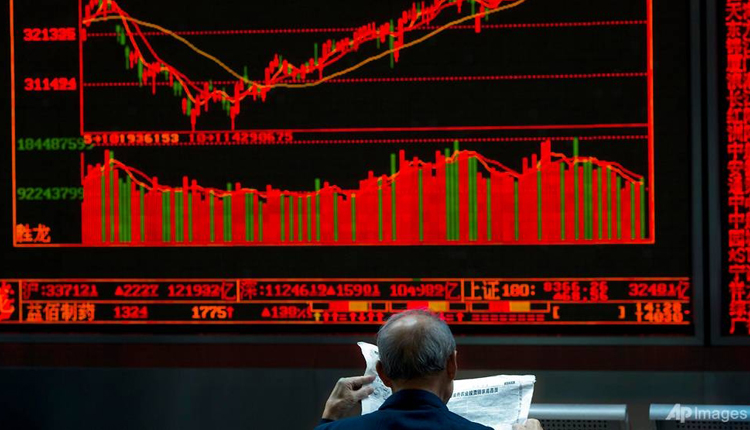Asian stocks traded lower on Wednesday afternoon following an overnight trading session on Wall Street that saw the end of the Dow Jones Industrial Average’s winning streak.
Mainland Chinese stocks slipped by the morning session’s end, with the Shanghai composite declining 0.57% and Shenzhen component shedding 0.72%. The Shenzhen composite also fell 0.42%.
Official Chinese inflation data showed the producer price index in the country rising 0.6% year-on-year in May, meeting expectations of analysts in a Reuters poll. The consumer price index also rose 2.7% year-on-year in the same period, its fastest pace since Feb 2018 and in line with analyst expectations.
Hong Kong’s Hang Seng index dropped 1.59% by the afternoon as protests continued in the city on Wednesday over the contentious China extradition law. Lawmakers in Hong Kong were originally set to discuss the proposal Wednesday morning, but the legislature announced in a statement on its website that the meeting would be “changed to a later time,” without offering a reason.
Elsewhere, the Nikkei 225 in Japan traded flat in the afternoon, with shares of conglomerate and index heavyweight Softbank Group dropping more than 2%.The Topix index also fell fractionally.
Over in South Korea, the Kospi slipped 0.13%, while Australia’s ASX 200 rose 0.16% as majority of the sectors saw gains.
Overnight on Wall Street, the Dow ended the trading day stateside down 14.17 points at 26,048.51, snapping a six-day winning streak. The S&P 500 declined less than 0.1% to close at 2,885.72 while the Nasdaq Composite finished just below breakeven at 7,822.57.
Meanwhile, U.S. President Donald Trump said in a tweet that the dollar is at a “big disadvantage ” against other major currencies such as the euro.
“The Euro and other currencies are devalued against the dollar, putting the U.S. at a big disadvantage,” Trump tweeted, adding the U.S. Federal Reserve doesn’t have “a clue.” The dollar fell slightly against the euro following Trump’s tweets.
Trump’s comments come amid increasing investor expectations that the Fed could cut interest rates in the coming months, though one analyst told CNBC the U.S. central bank is likely to “continue to sit on the fence.”
“I think all this talk about the Fed being ready to cut is actually very, very counterproductive and it’ll be a race to the bottom. I don’t think things are that dire at all. I think there’s still quite a lot of ammunition in the United States,” David Marsh, chairman and co-founder at OMFIF. “The economy hasn’t slowed by that much.”
The U.S. dollar index, which tracks the greenback against a basket of its peers, was at 96.682 after trading between 96.6 and 96.9 yesterday.
The Japanese yen traded at 108.45 against the dollar after scaling levels above 108.6 in the previous session, while the Australian dollar changed hands at $0.6947 following its slip from levels above $0.699 earlier in the week.
Oil prices declined in the afternoon of Asian trading hours, with the international benchmark Brent crude futures contract slipping 1.4% to $61.42 per barrel and U.S. crude futures falling 1.48% to $52.48 per barrel.
Source: CNBC
